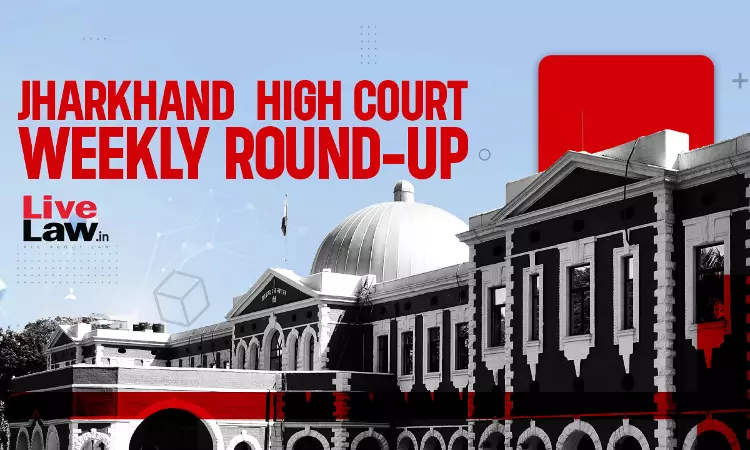Jharkhand High Court Weekly Roundup: April 07 - April 13, 2025
Bhavya Singh
15 April 2025 10:22 AM IST

Next Story
15 April 2025 10:22 AM IST
Citations: 2025 LiveLaw (Jha) 26 To 2025 LiveLaw (Jha) 30NOMINAL INDEXTata Steel Ltd v. State of Jharkhand 2025 LiveLaw (Jha) 26M/s Bodhraj Construction v. Snehanshu Sinha 2025 LiveLaw (Jha) 27Nirmala College vs .State of Jharkhand and ors 2025 LiveLaw (Jha) 28The State of Jharkhand Secretary and Ors vs Prabudh Nagar Sahakari Grih Nirman Samiti Ltd 2025 LiveLaw (Jha) 29M/s. Castrol India...
